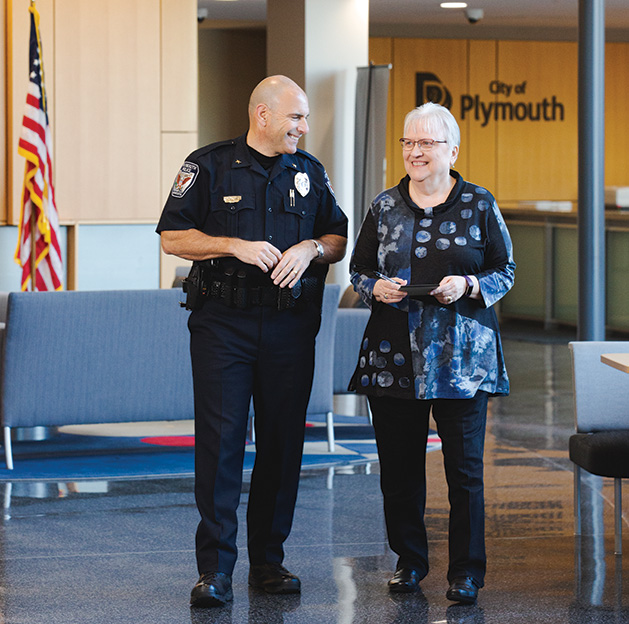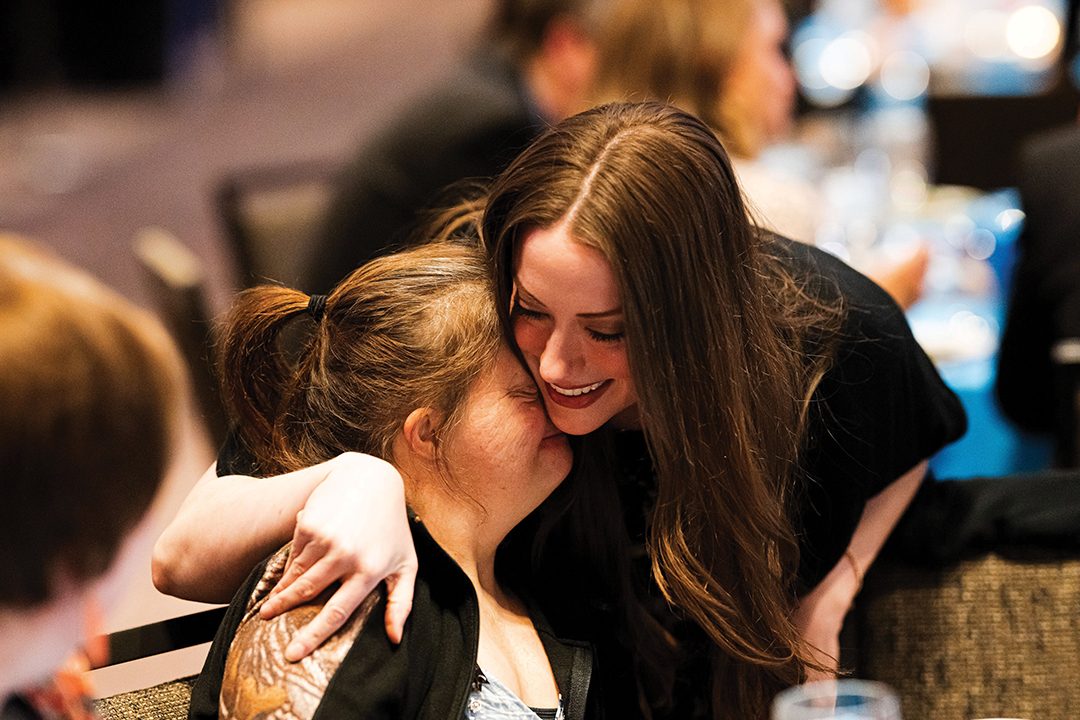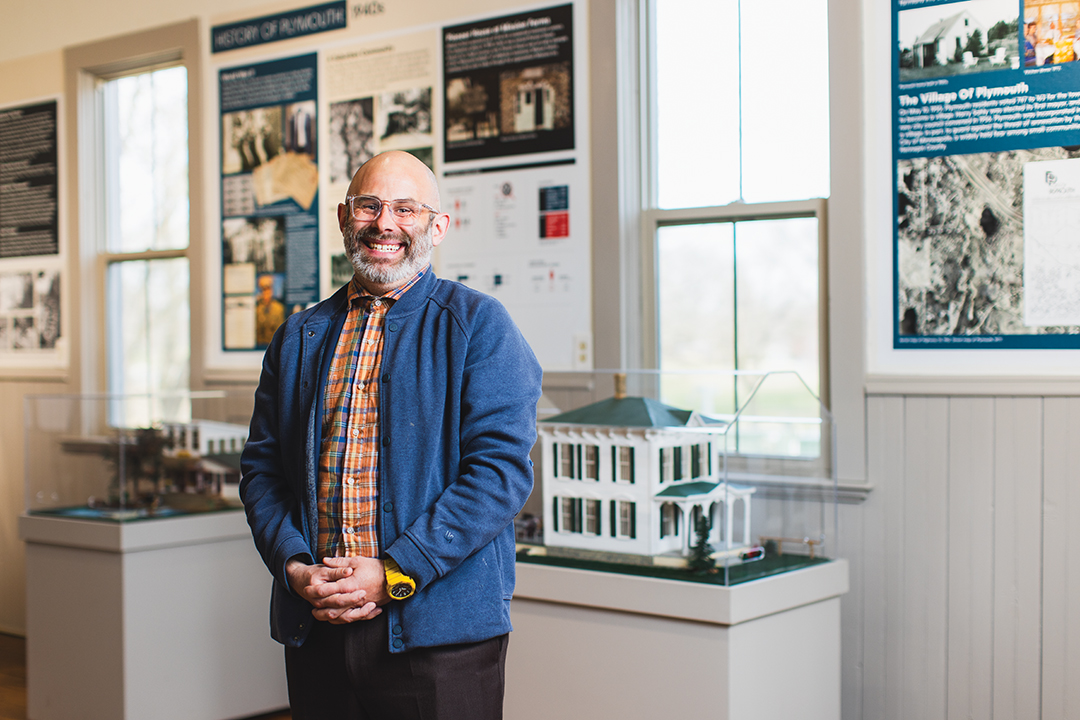
Chief Michael Goldstein and Cynthia Arkema-O’Harra of Criminal Justice Behavior Initiatives and Chemical Health for Hennepin County. Photo: Rachel Nadeau
Since July, a social worker has been working on site with the Plymouth Police Department to help with behavioral health calls.
Plymouth police chief Michael Goldstein says something needed to change. Every day, officers were spending time on calls related to behavioral health— issues that often didn’t involve any criminal behavior, with calls involving the same people again and again. In the last four years, he says, calls for services related to behavioral health have gone up 59 percent.
“Our officers are well-trained, and, to varying levels, many of them have had training in dealing with [behavioral health],” he says. “But we didn’t know how to access available resources to really help.”
Goldstein says the situation was a band-aid approach, because while the Plymouth Police Department (PD) was able to respond and to diffuse the immediate problem, the underlying issues weren’t being resolved, so in a matter of weeks or even days, officers would be called to the same situation again.
“The band-aid was serving no one,” says Goldstein.
What officers needed and wanted was to be able to connect the people they encountered on these calls with someone who could follow-up and direct them to long-term help, says Goldstein.
Since July, a social worker has been working on site with the Plymouth PD to do just that. Goldstein says it is a two-year pilot with Plymouth PD and Minnetonka’s police department sharing the social worker and the cost. He believes it will be standard practice for departments to have this kind of relationship with county social workers in the near future.
“It’s a living, breathing program. We’ll see how it grows and evolves,” says Goldstein. He is committed to moving the idea forward. “It will make for safer a community for everybody,” he says.
The most obvious impact of the program is that it gives officers someone to call when they are faced with a situation where jail isn’t appropriate, but the person needs some kind of help and support.
Cynthia Arkema-O’Harra is the program manager for Criminal Justice Behavioral Health Initiatives and Chemical Health for Hennepin County. She joined the process early on and offered input from a social work perspective.
“The feedback from police was that they were getting a lot of calls for people who didn’t require jail or hospitalization, but these were people who did need services,” she says.
Arkema-O’Harra talks about the idea of communities decriminalizing what she calls livability crime—like open container violations, loitering and other offenses that can result in a ticket rather than jail. Sometimes, she says, it is as simple as getting someone access to food.
“And the outcome for a situation is often different when it’s a social worker involved rather than a police officer. When you’re tired and hungry, you don’t always make good decisions,” she says.
She shares Goldstein’s belief that often the solution is just knowing where to look. Social workers are tied into an array of services police officers simply don’t know about. Also, dealing with a police officer is a completely different interaction than dealing with a social worker.
Goldstein says his officers are good at de-escalating tense situations, but it’s pretty easy to imagine the nature of a conversation with a social worker who is talking to you about services and trying to figure out what kind of support you might need, is not the same as the conversation you have with even the nicest officer—a person with a visible gun.
Everyone involved with the embedded social worker program in Plymouth is hoping it will accomplish the same thing: end the revolving door of police interaction, release and then another police interaction. Both Goldstein and Arkema-O’Harra agree that no one benefits from a system where there is no off-ramp for people who don’t—for whatever reason—have a stable day-to-day life. If officers can turn to a social worker, someone trained not just to deal with the immediate situation, but someone who can dig down into the problem and find support and resources to address the underlying situation, then everyone will be better off.
Being open to innovation is one the things chief Goldstein says is important to him. “I’m always looking for something better than what we’re doing today,” Goldstein says. “This is the right thing to do and the right time to do it.”
For more information about this or any Plymouth PD program, email the department at police@plymouthmn.gov. police@plymouthmn.gov.
Facebook: City of Plymouth, MN – Local Government
Instagram: @plymouthMN_gov
Twitter: @plymouthmn_gov






















